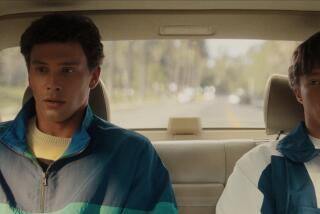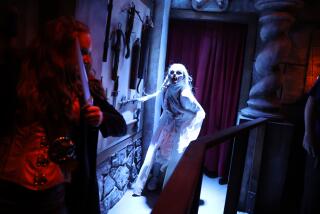Through many different lenses, the Frankenstein myth endures. Teen rom-com, anyone?
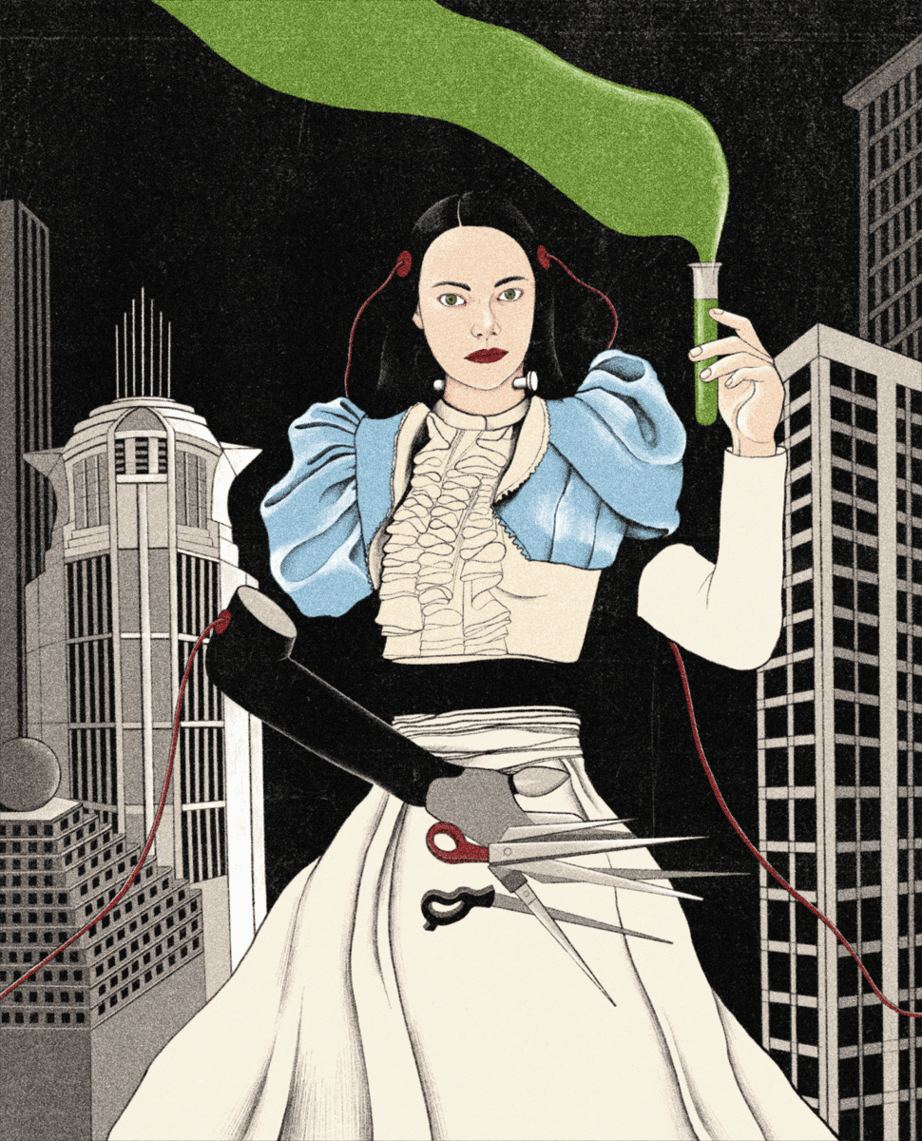
- Share via
The year 1818 saw the publication of Mary Shelley’s “Frankenstein; or, the Modern Prometheus,” a gothic tale of generating monstrous life and pushing science past its limits. The book is now regarded as the first true work of science fiction. Shelley had recently lost a premature, 2-week-old child; the idea of creating and losing life was surely top of mind and easily transferable to her antihero, the dangerously ambitious Dr. Victor Frankenstein. The movies, of course, wouldn’t arrive for decades, so Shelley, who died in 1851, would never know the impact her Creation would make on the screen.
The Frankenstein myth has left a trail of thrills, cautionary tales and variations, including “Poor Things,” Yorgos Lanthimos’ deliriously imaginative take that scooped up 11 Oscar nominations, including for Emma Stone’s turn as a sexually liberated Frankenstein’s Monster teaching herself about life and upending conventional gender politics in 1880s Europe. Bella Baxter starts off as the creation of Dr. Godwin Baxter (Willem Dafoe), a fairly benevolent mad scientist who, confronted with a woman who had jumped off a building, took the brain of that woman’s unborn child and placed it in its mother’s head. With the body of an adult and the brain of an infant, Bella is an intriguing oddity. She’s also a very, very quick learner.
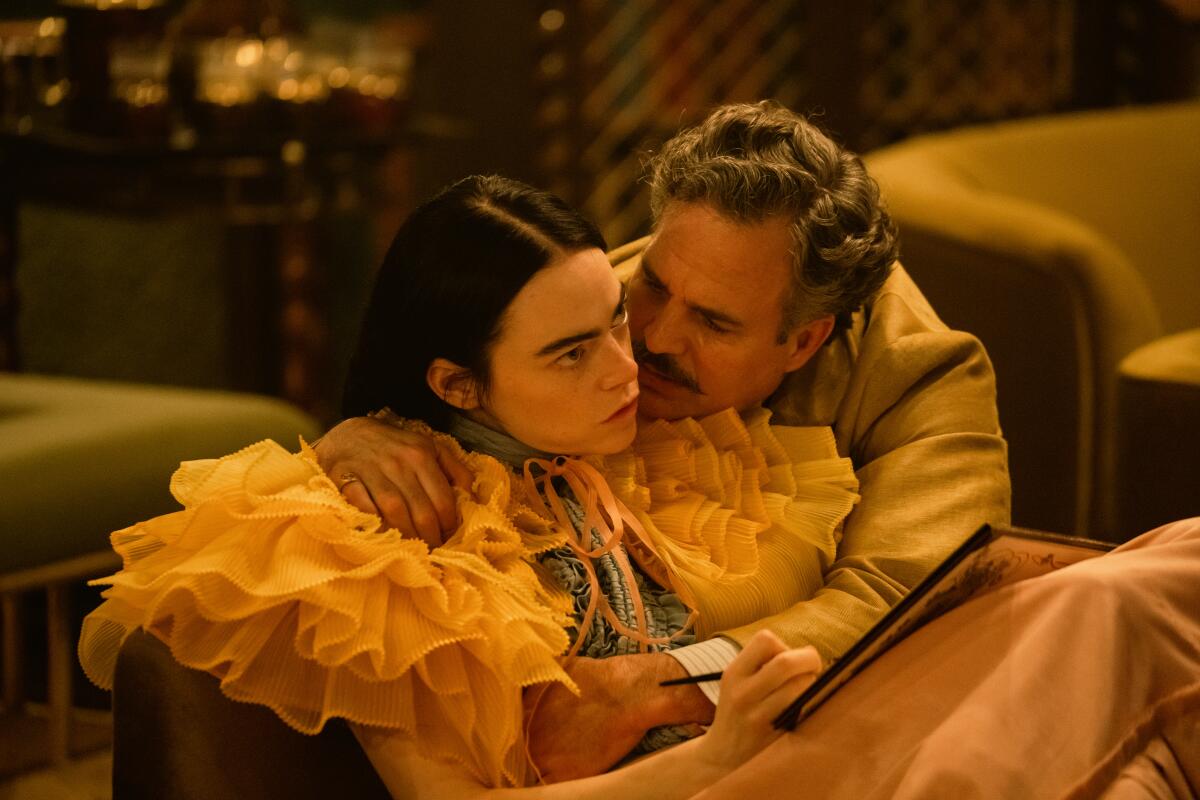
Bella follows in the footsteps of not just Frankenstein’s Monster, immortalized in James Whale’s 1931 “Frankenstein,” but also such characters as the robot Maria in Fritz Lang’s “Metropolis” (1927), the creations of the 1985 gore classic “Re-Animator,” and Tim Burton’s melancholy “Edward Scissorhands” (1990). It’s a durable myth that encompasses some juicy themes: science run amok; the consequences of transgression; the irresponsible parent; the societal outcast; the essential loneliness of the human condition.
But “Poor Things,” based on the 1992 novel by Alasdair Gray, also boomerangs back to the trailblazing Shelley by applying a decidedly feminist touch. Whereas the title character of James Whale’s “Bride of Frankenstein“ (1935) gets only a few minutes of screen time and is created merely to give Boris Karloff’s Monster a mate, Bella increasingly takes charge of her life, inside the bedroom, where she learns to set the ground rules, and out.
Screenplays rely on a three-act structure. So does writing them. And don’t forget the mid-point fail, says Tony McNamara in an essay.
Tony McNamara, one of the movie’s Oscar nominees for his adapted screenplay, had some fun with the men who want to claim ownership over Bella, including Dr. Baxter and the rakish Duncan Wedderburn (Oscar nominee Mark Ruffalo), and with Bella’s burgeoning refusal to let them do so.
“There is that real male desire for control,” McNamara said in a phone interview. “They keep objectifying her. They keep telling a story about her that they think is her story. We wanted to get that idea of these guys that just want her to be what they want her to be. It’s important that she’s a woman, because that dynamic is more true of the female experience, I suspect, that there’s this constant level of men telling women what they should be.”
If “Poor Things” is the story of a Frankenstein’s Monster gaining agency (as Shelley’s Monster did, to some extent, as reflected in the underrated 1994 Kenneth Branagh/Robert De Niro “Frankenstein”), there are also tales that reshape the role of the mad scientist. Some of these, especially in recent literature, mirror the “Poor Things” imperative to tell the story from a woman’s perspective.
Among the best of these tales is “Our Hideous Progeny,” C.E. McGill’s 2023 novel about a female descendant of Victor Frankenstein who commits her own scientific transgressions.
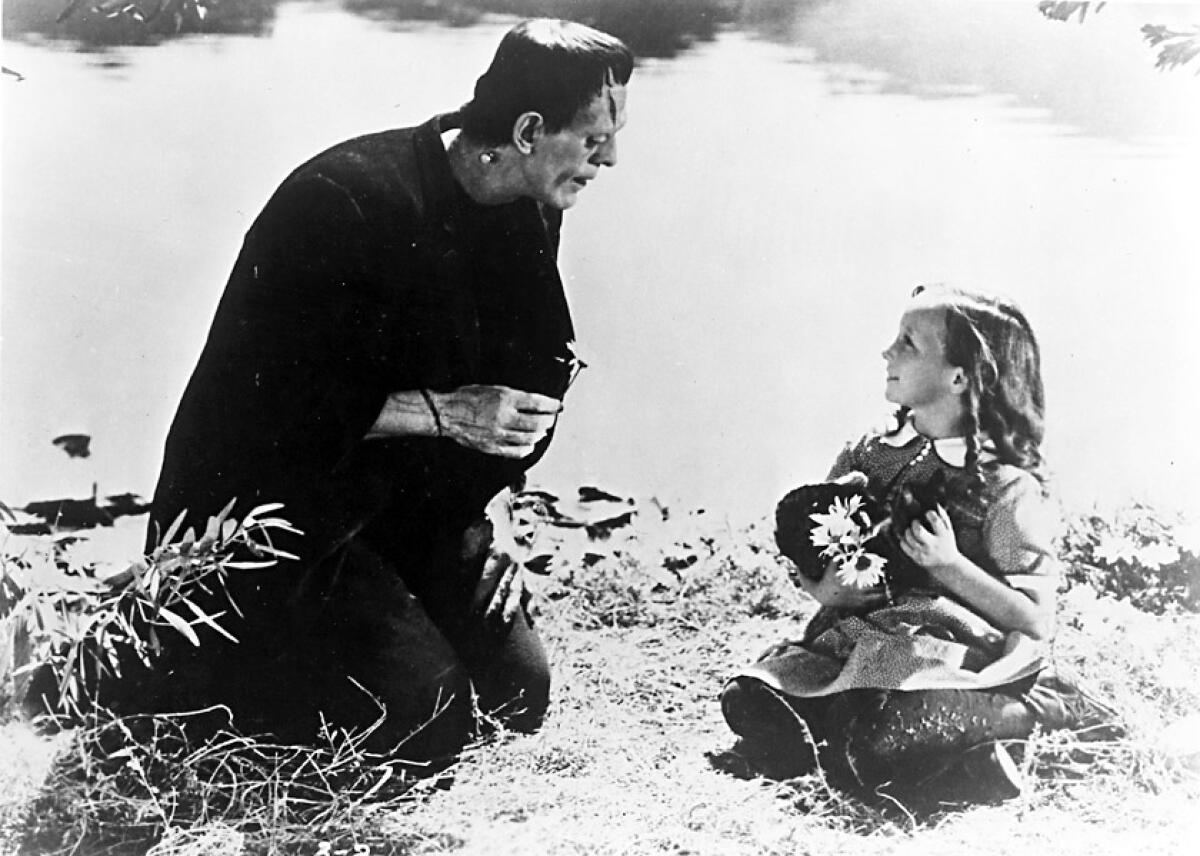
In it, Mary is Victor’s great-niece, trying to make headway in the male-dominated world of paleontology in Victorian London. The famous Crystal Palace dinosaur exhibit is all the rage. But Mary, a queer woman married to a male scientist (and degenerate gambler), wants to leave her own mark in the field away from the pomp and circumstance of the big show. Then she stumbles upon her great-uncle’s old notes, describing his tragic experiments and offering clues as to how they might be repeated.
What follows is a sort of Victorian “Jurassic Park,” in which Mary, like her disgraced ancestor, figures out how to bring the inanimate to life. In the process, she far surpasses the tentative progress made by her male peers and even shows a bit of a maternal touch.
McGill, who came up with the idea for “Our Hideous Progeny” as a graduate student at North Carolina State University, wanted to veer away from the original “Frankenstein” conception that knowledge is inherently bad. Her choice had everything to do with her hero’s gender.
“From the moment I realized that I wanted the main character to be a woman, I didn’t think that someone who’s been systemically denied knowledge and education in the 1800s and has to fight for every scrap of education that she gets would agree with the idea that ignorance is better,” they said in a video interview from their home in Scotland. “For Mary, knowledge is very clearly power. So I tried to go in the direction of saying it’s not the inherent knowledge that is evil, but it’s what you do with it and it’s how you apply it in the world.”
The Frankenstein myth hasn’t yet reached a saturation point with these latest offerings. Guillermo del Toro will soon deliver his dream project, a “Frankenstein” starring Jacob Elordi as the Monster and Oscar Isaac as Victor. And this year, we’ve already gotten yet another female twist: the just-released “Lisa Frankenstein,” directed by Zelda Williams (daughter of Robin Williams), written by Diablo Cody and starring Kathryn Newton as the title character, a teenager who falls in love with a reanimated corpse.
It’s still alive. And it won’t be dying anytime soon.
More to Read
Sign up for The Envelope
Get exclusive awards season news, in-depth interviews and columnist Glenn Whipp’s must-read analysis straight to your inbox.
You may occasionally receive promotional content from the Los Angeles Times.

